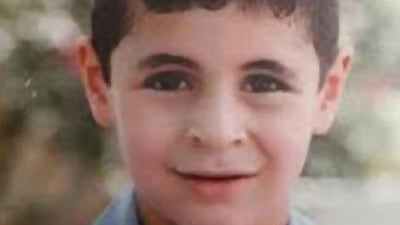The murder of a nine-year-old Sharjah boy last weekend sent a shock wave across the country. Such crimes are, thankfully, extremely rare, but this incident is a heartbreaking reminder that our children are vulnerable. The outpouring of grief, sympathy for the family and anger are entirely understandable. As a community we are repulsed by this horrendous act, and we have a shared interest in seeing that justice is done.
There is nothing we can do to bring back Obaida Ibrahim Al Aqrabawi, but as a society we must ask what we can learn from this terrible incident. There are certainly steps we can take to assist his family – including appropriate emotional and other forms of support. We also have a joint interest in knowing that the authorities are equipped to investigate and, hopefully, prevent any similar incidents in the future.
One idea worth investigating is a system that has been operating in the United States for many years and has been adopted elsewhere. In cases where children go missing and the police believe that public information could help their inquiries, they will issue an “amber alert”. This goes directly to participating media – radio, television, newspapers and online news services – and they will make priority announcements giving a description of the missing child and other information such as how they were dressed, where they were last seen and who they were with. These alerts, which are often spread further by social media, can be broadcast widely or directed at users in the relevant geographic area or community. Individuals can also subscribe to alerts delivered by SMS. It is a way of crowdsourcing the job of finding a missing child.
It may be, for example, that we think nothing of seeing a crying child being dragged into a car by an adult. Our presumption that the child is misbehaving and that the adult is their parent or carer may well be correct. But if we know that an amber alert has been issued and that the people match the descriptions provided, we can call the police. The key to these alerts is that they are issued only in extreme cases, and as soon as possible after a child goes missing, maximising the chances of a happy resolution.
The system has met with some success overseas and it is well worth investigating its potential here. When we work together as a community, we can achieve so much more than we can do by acting alone.

